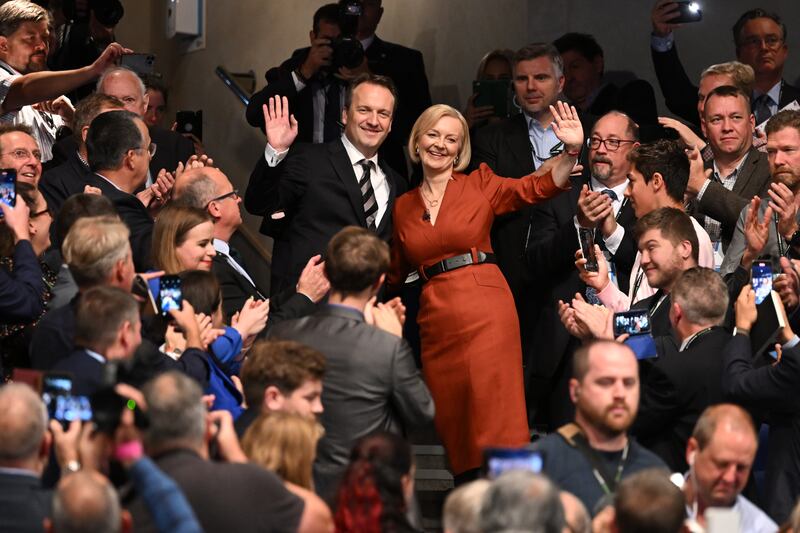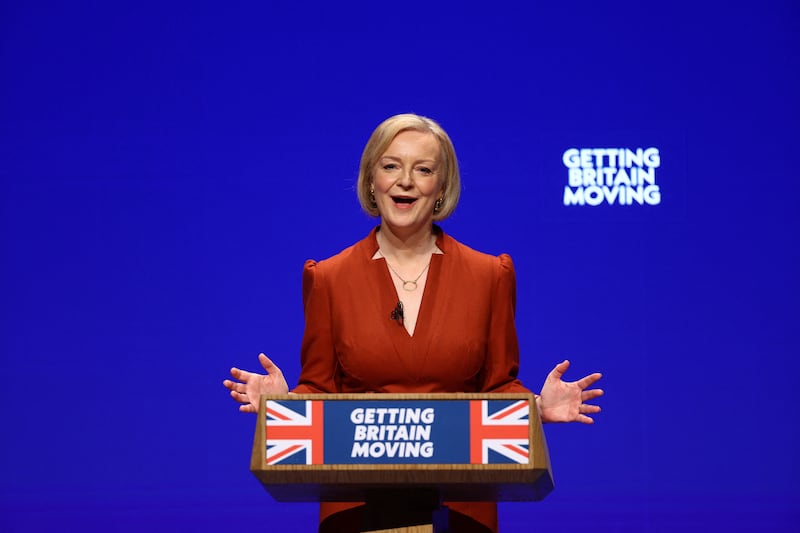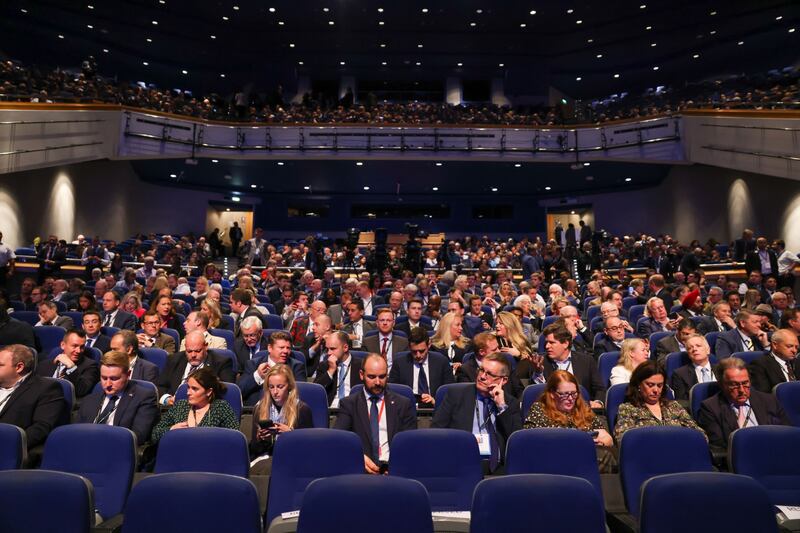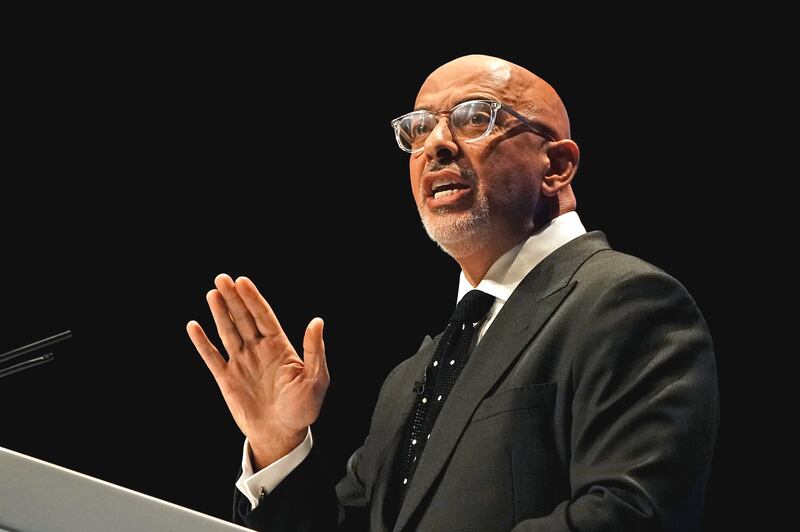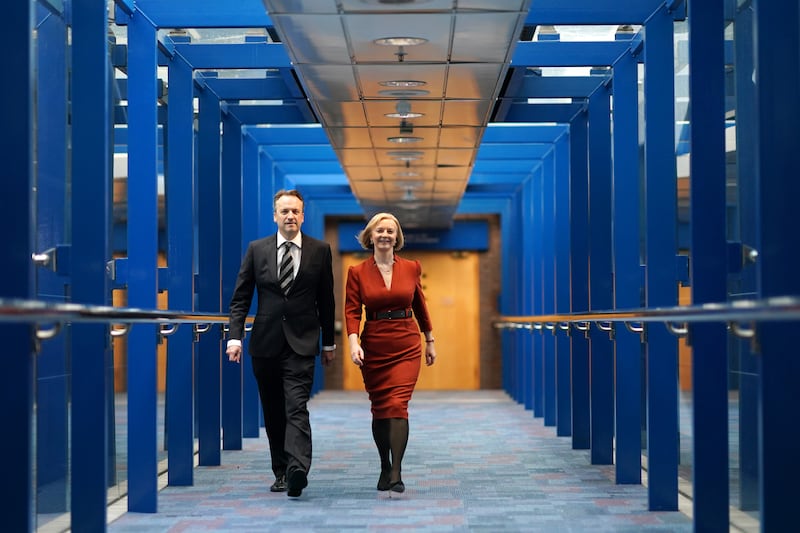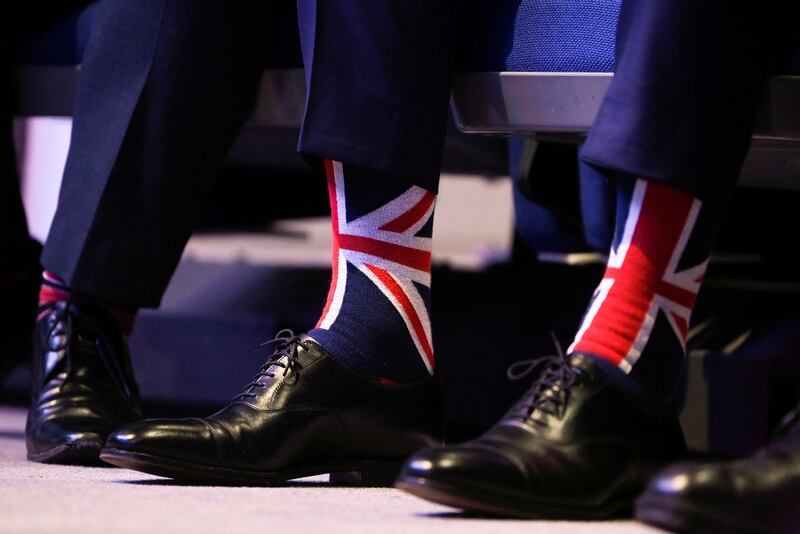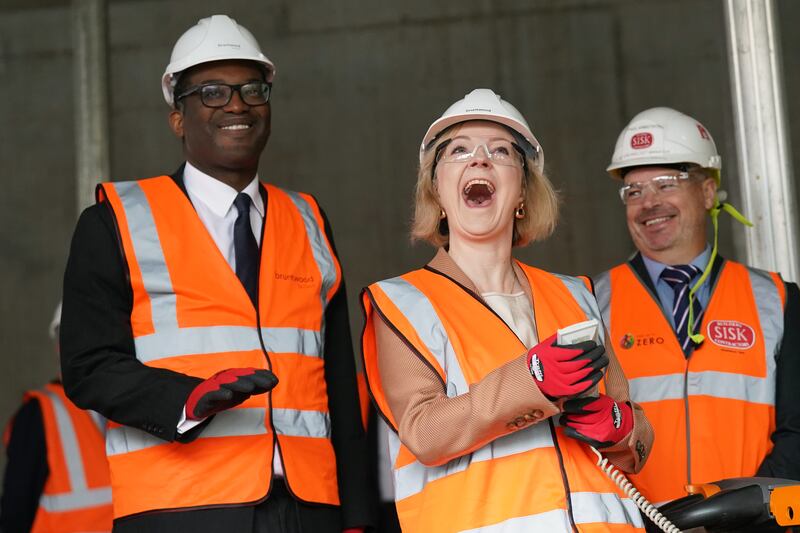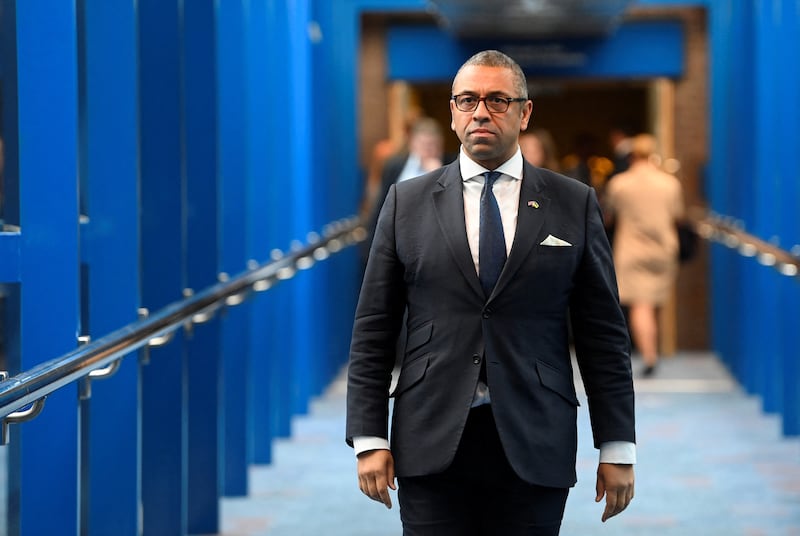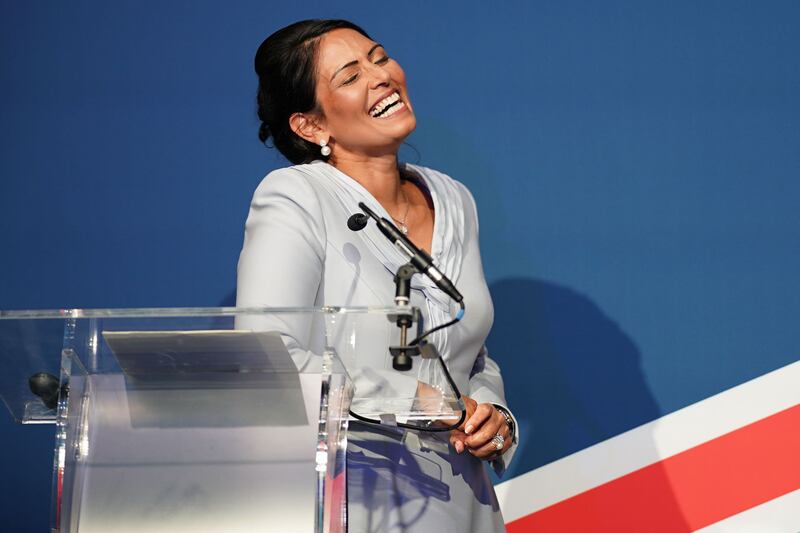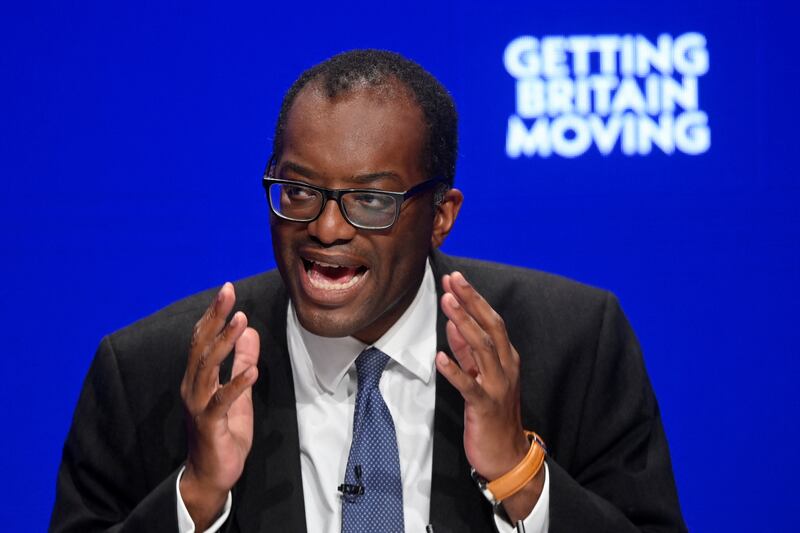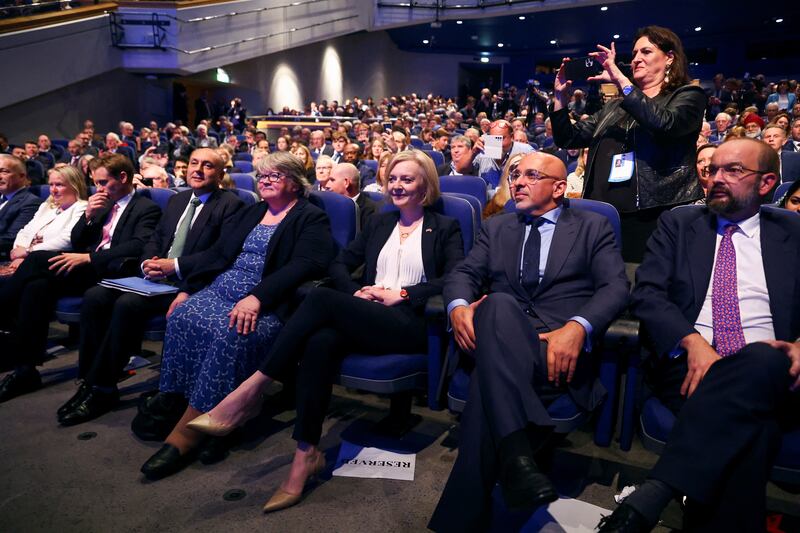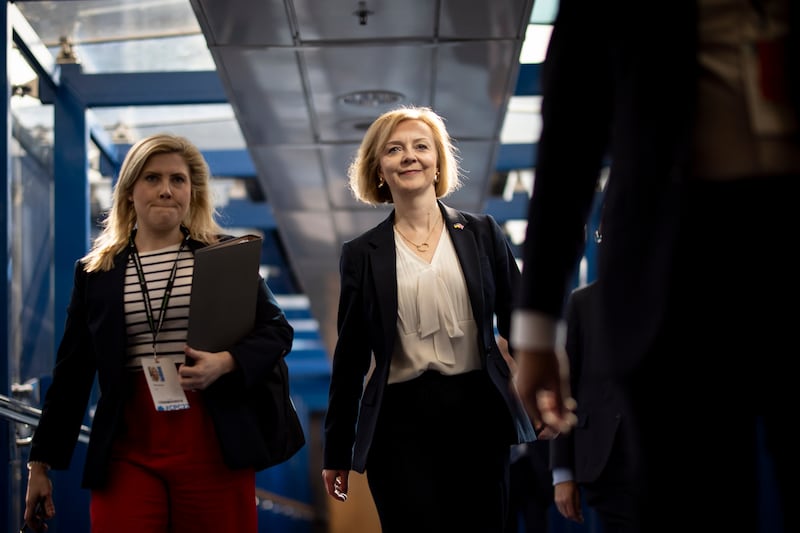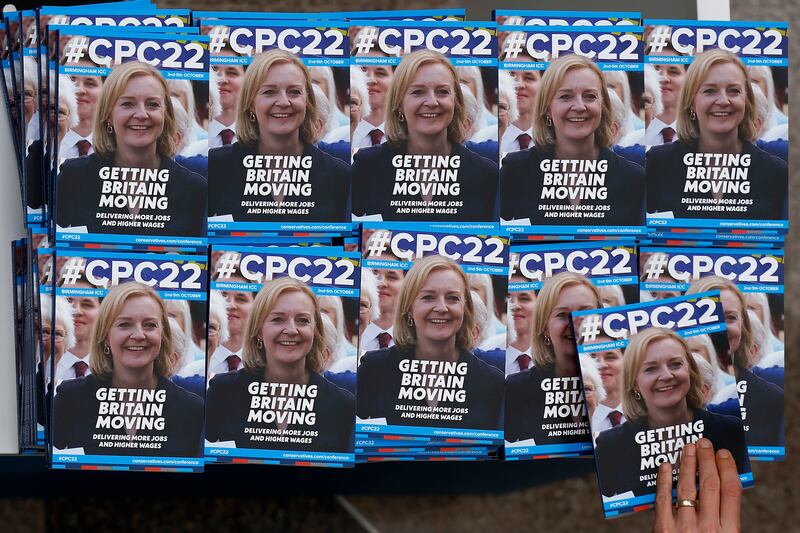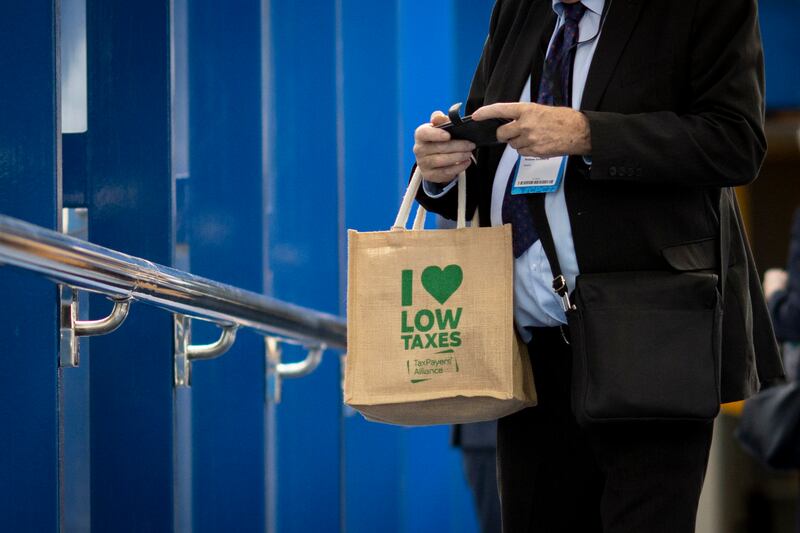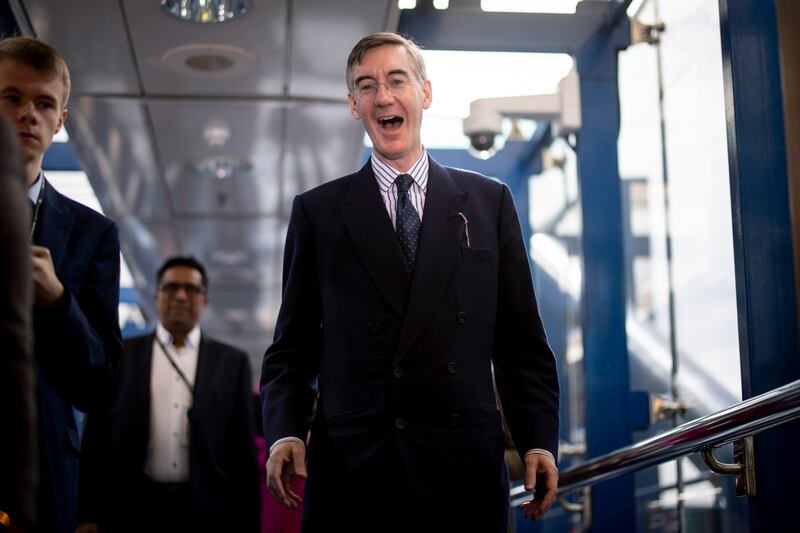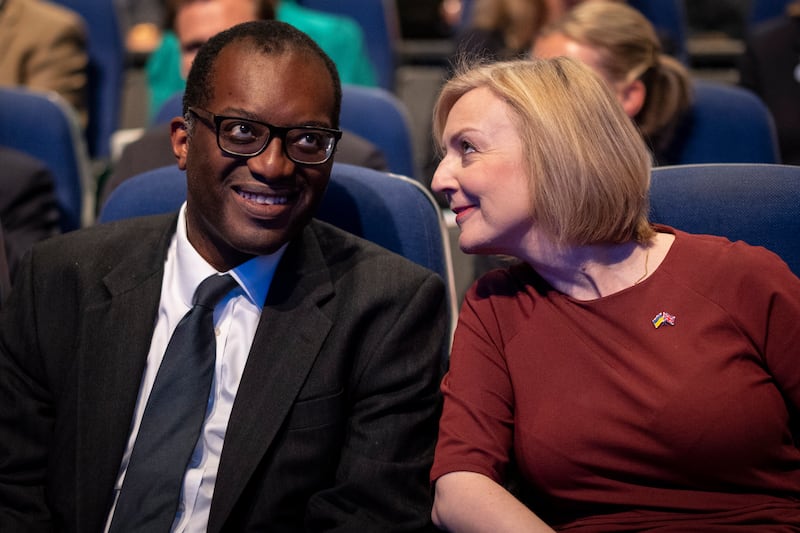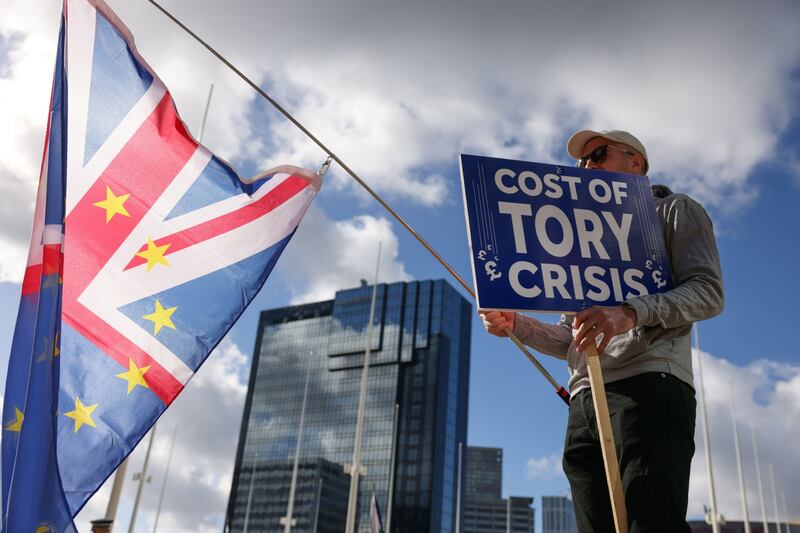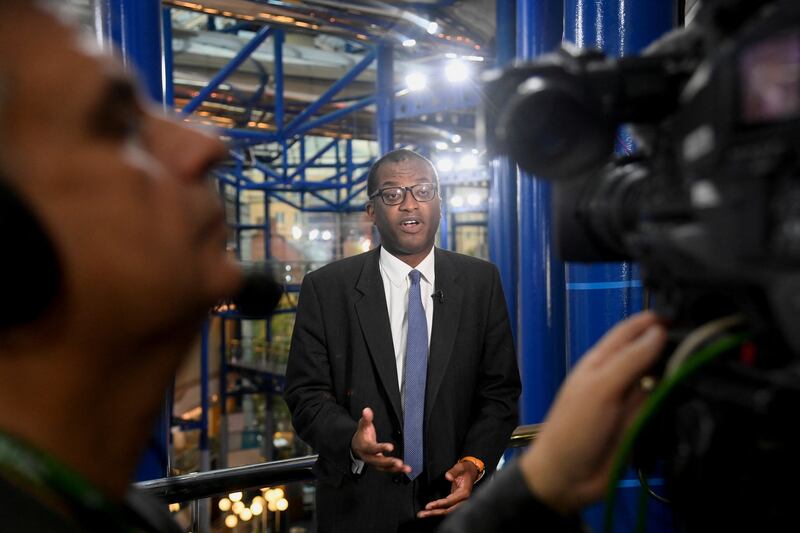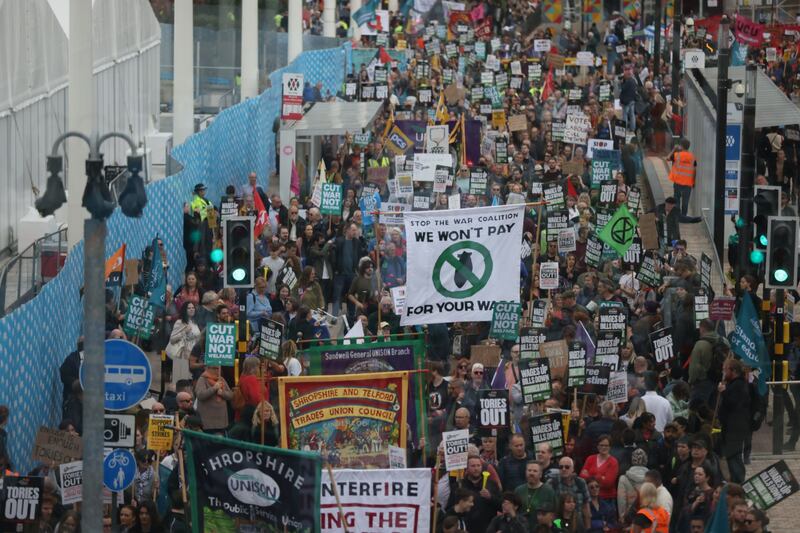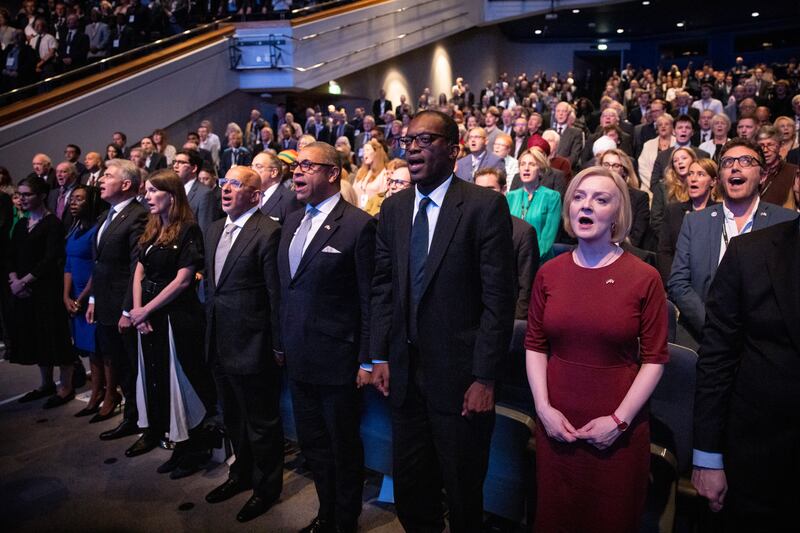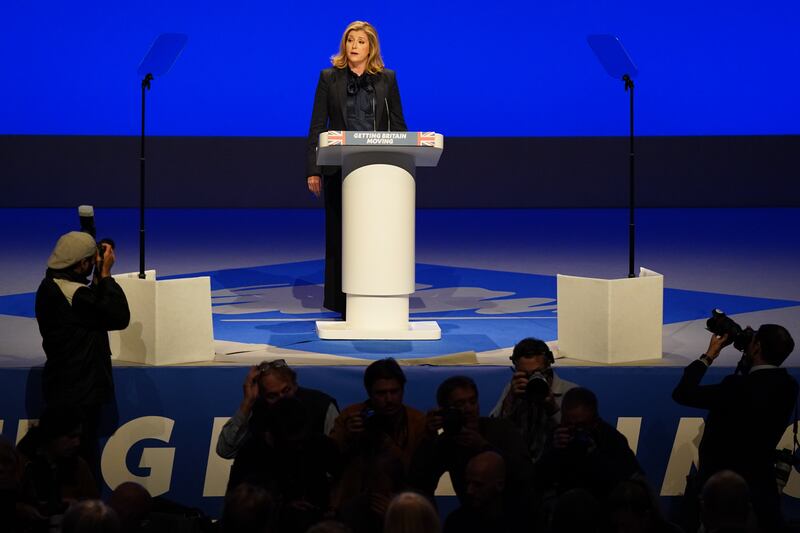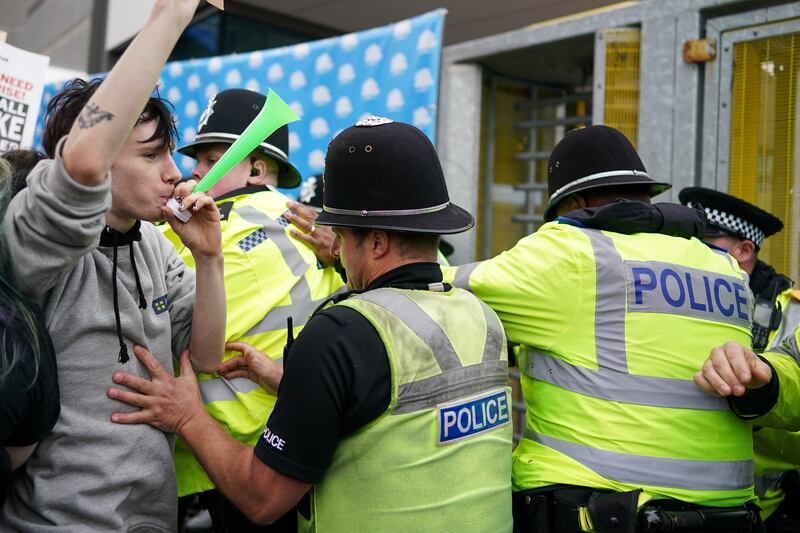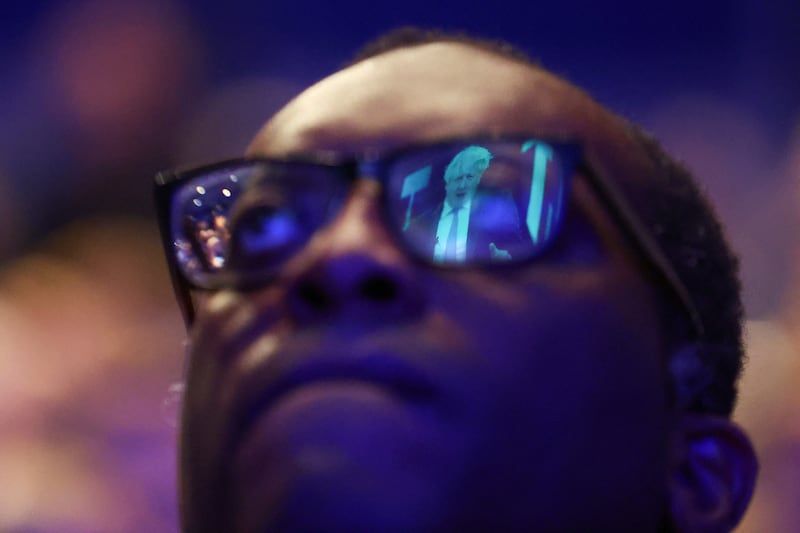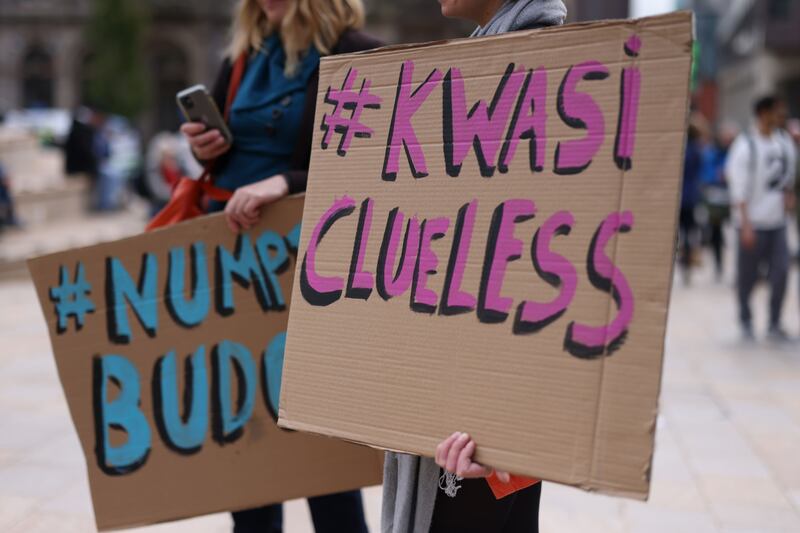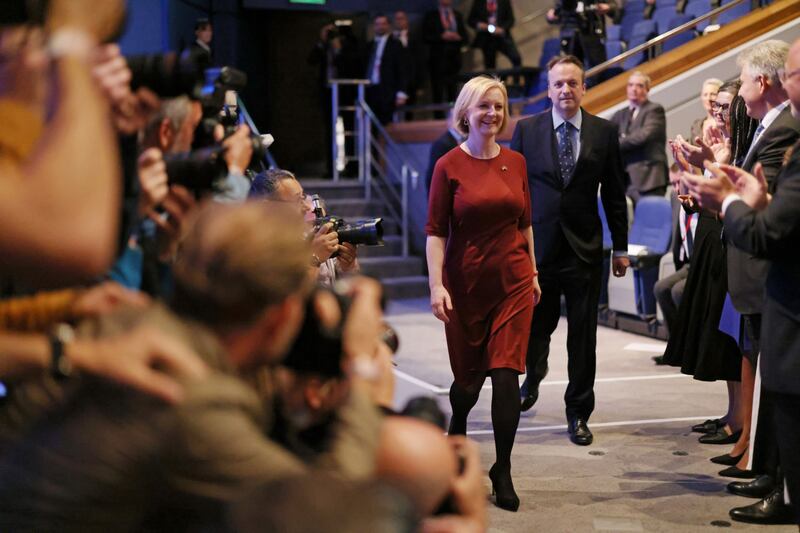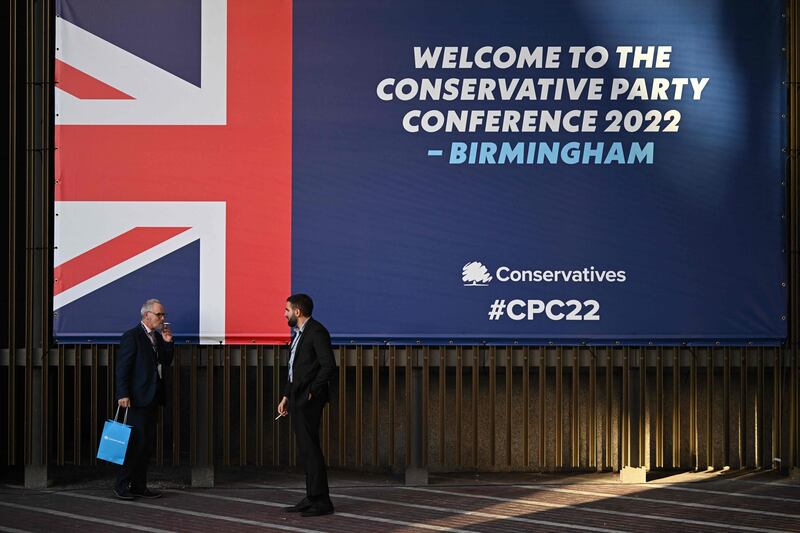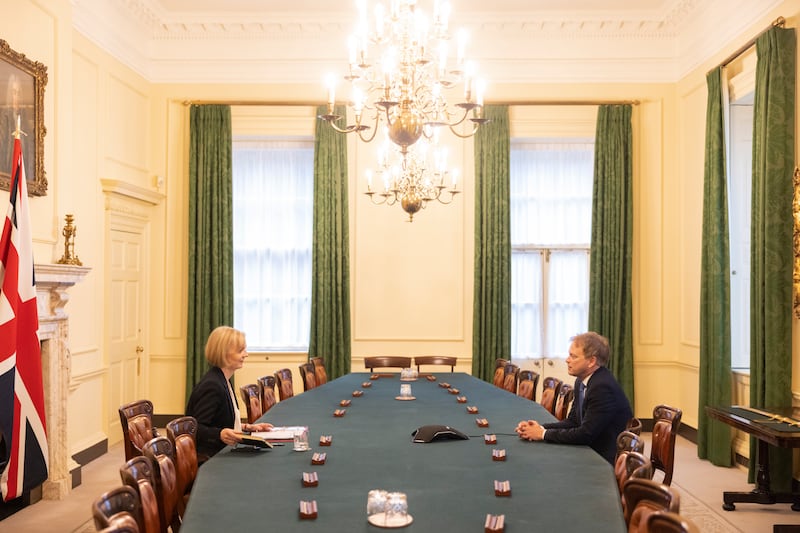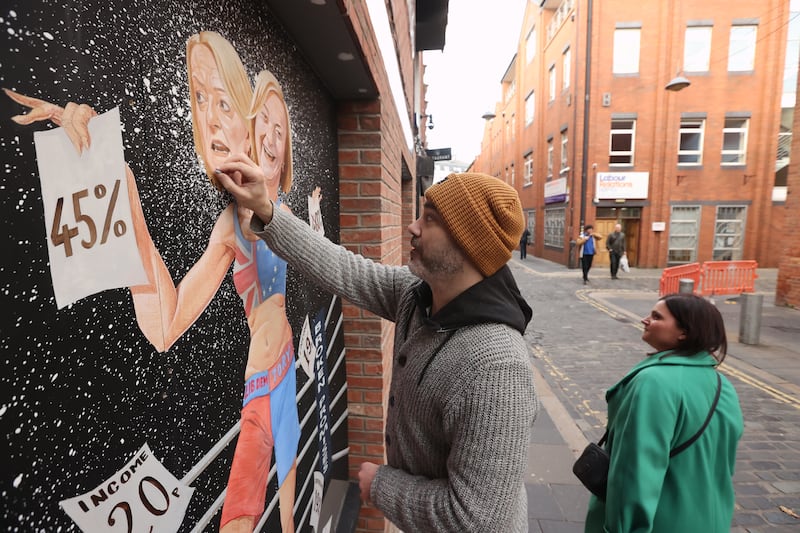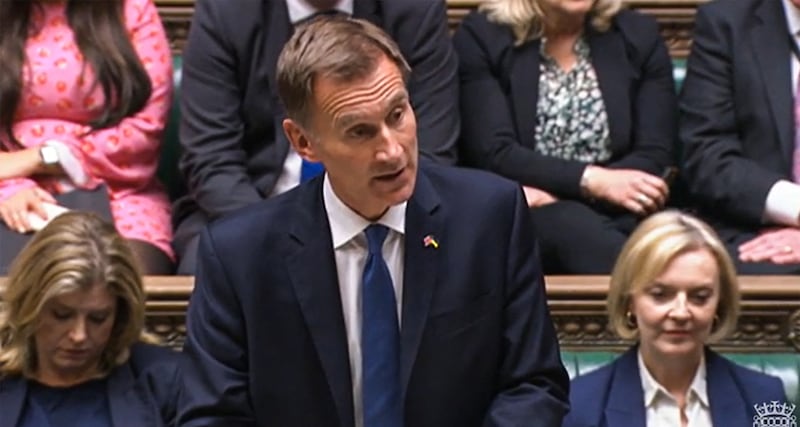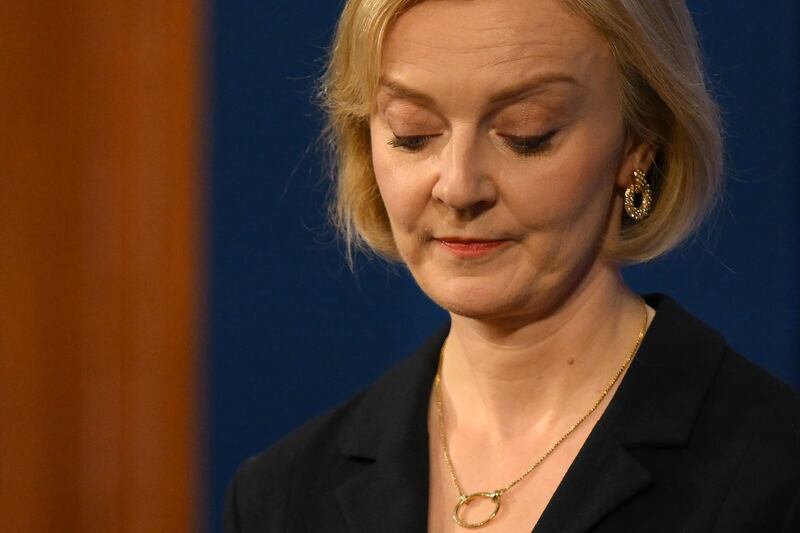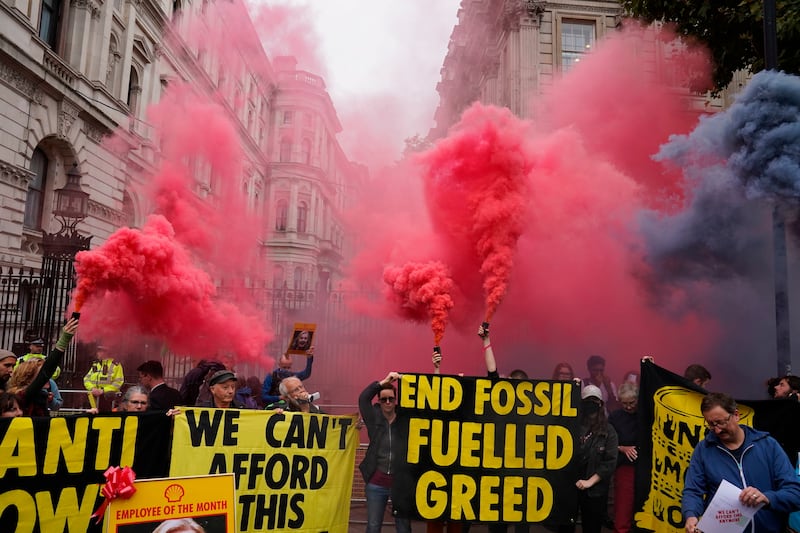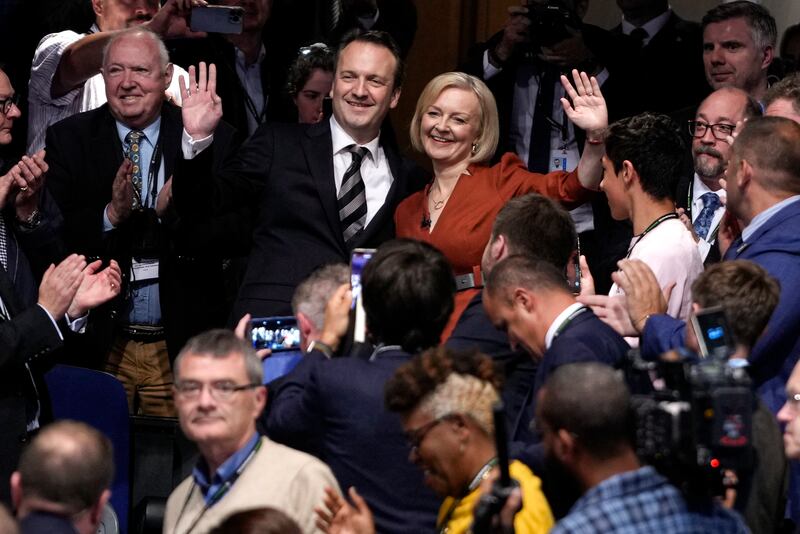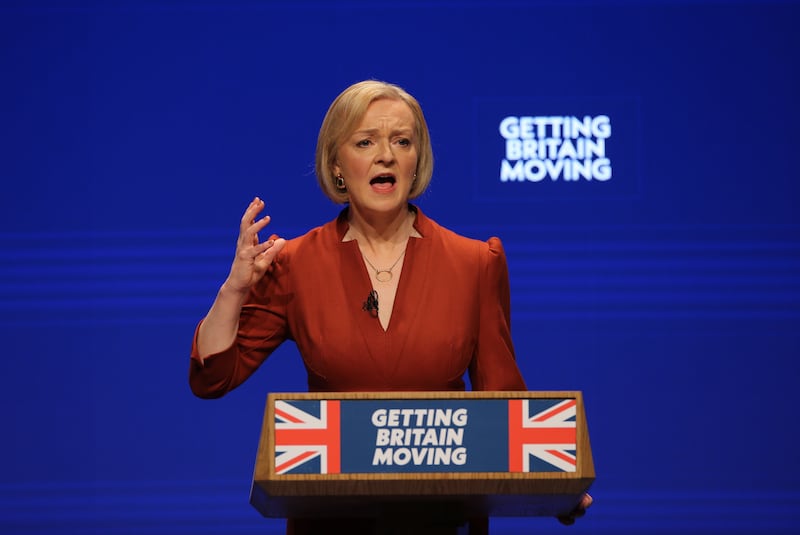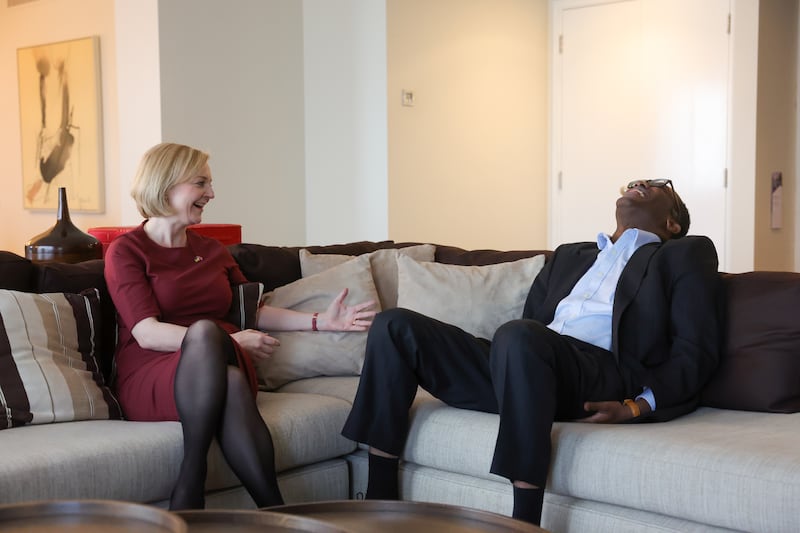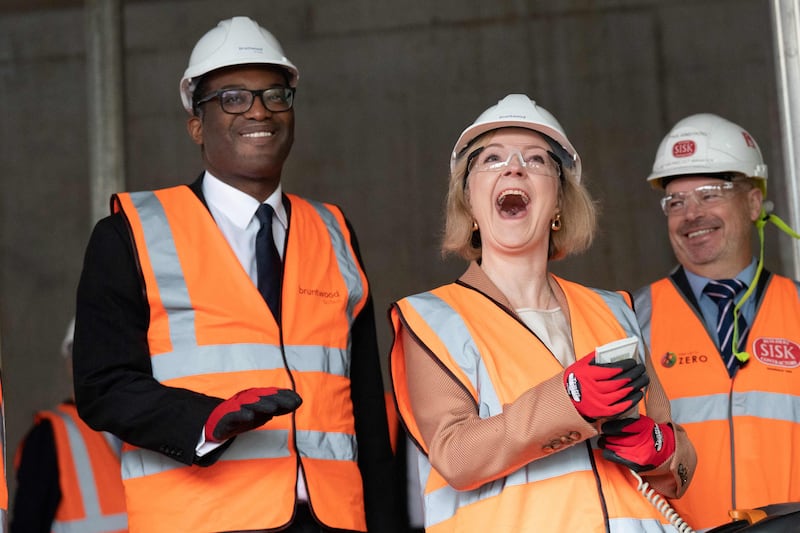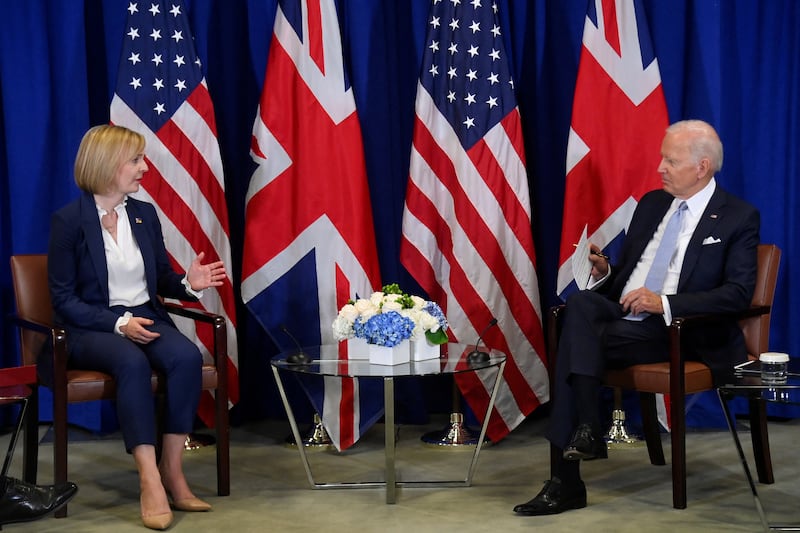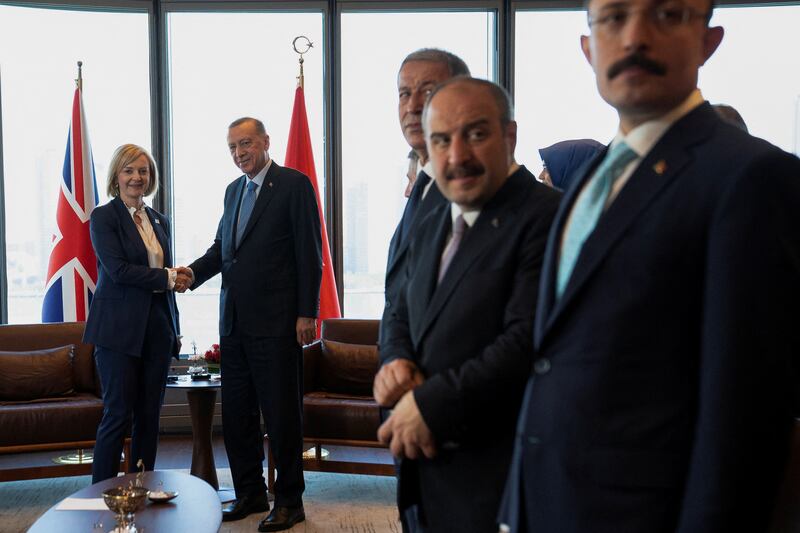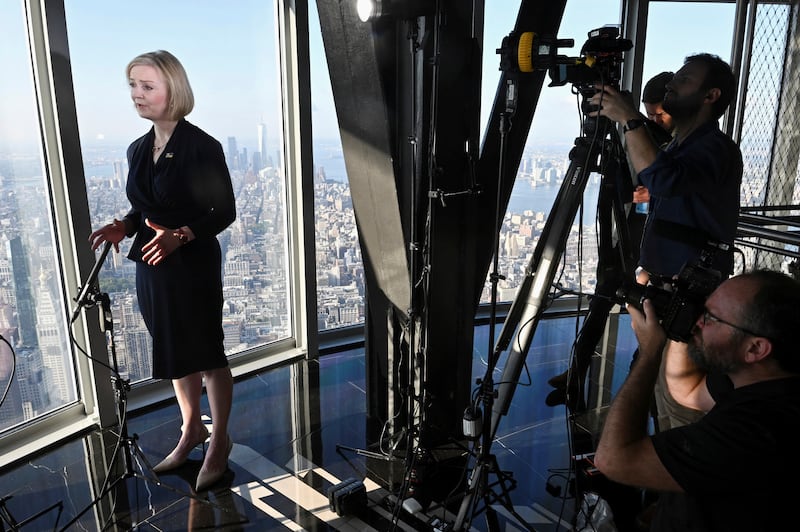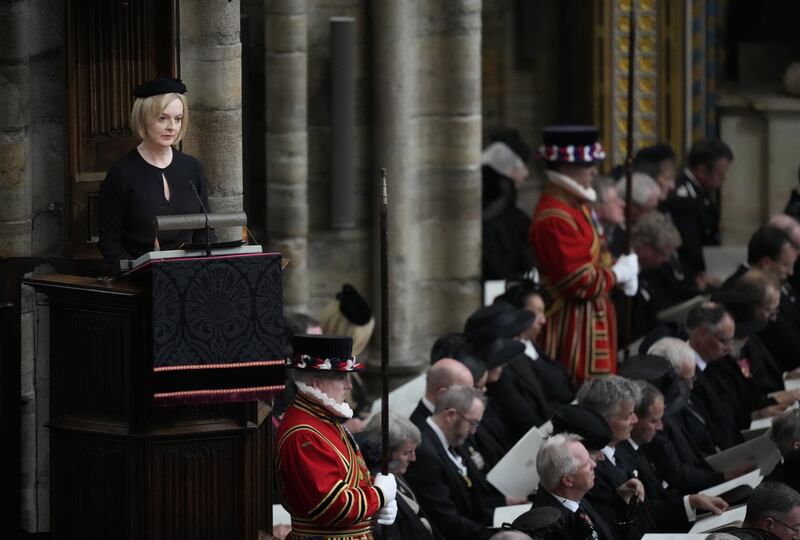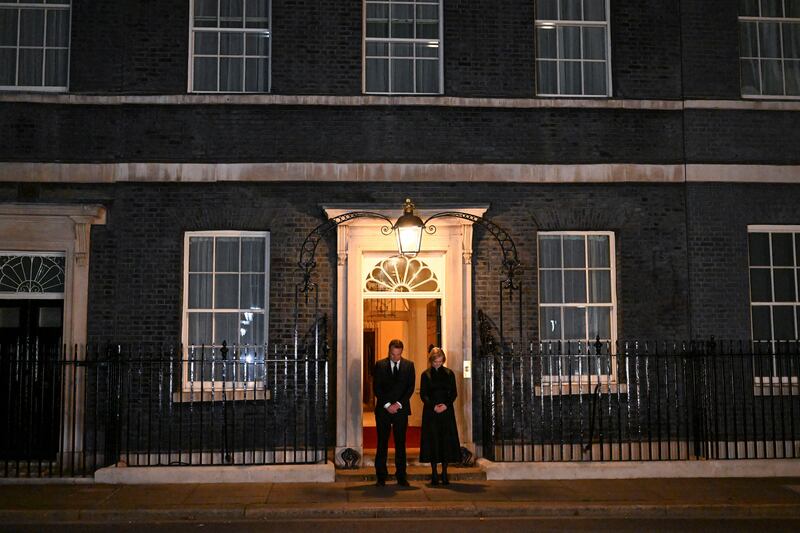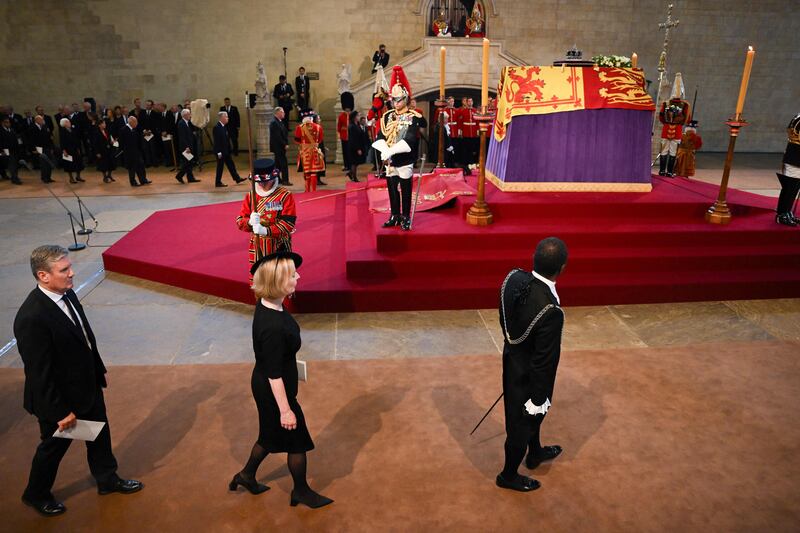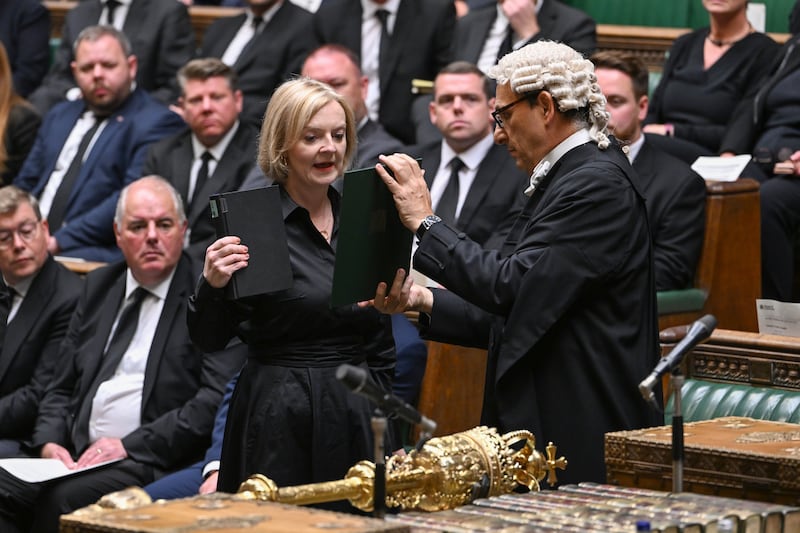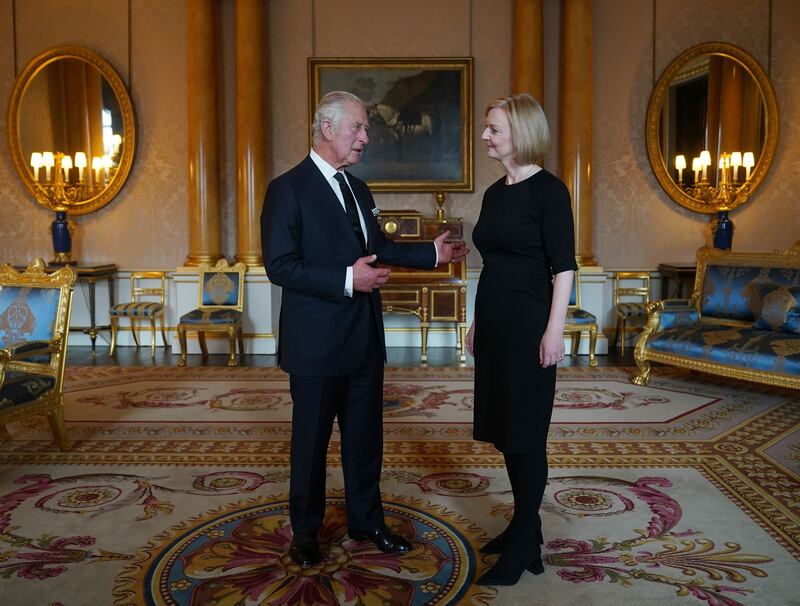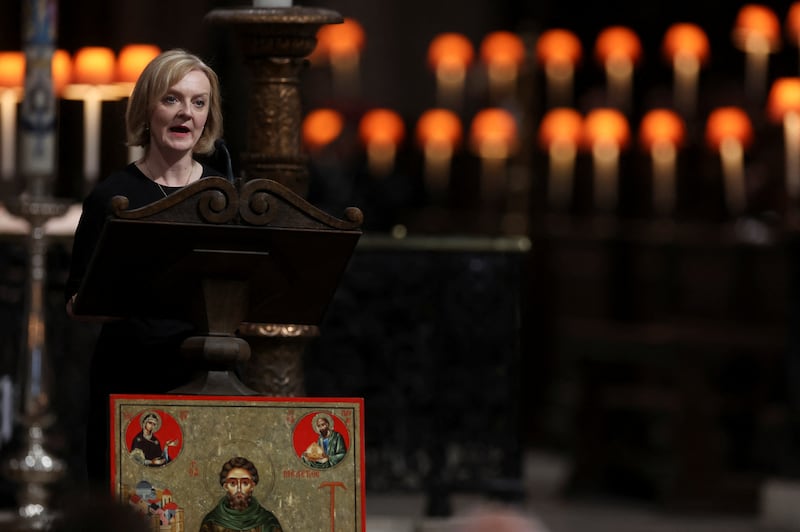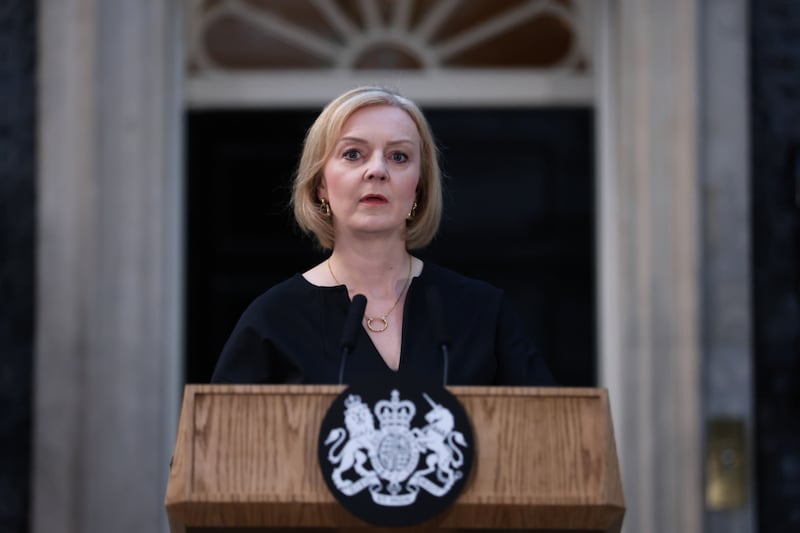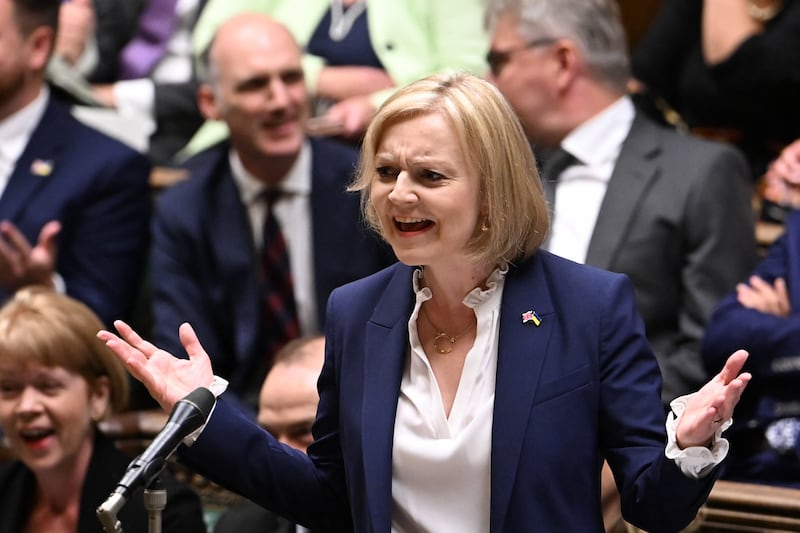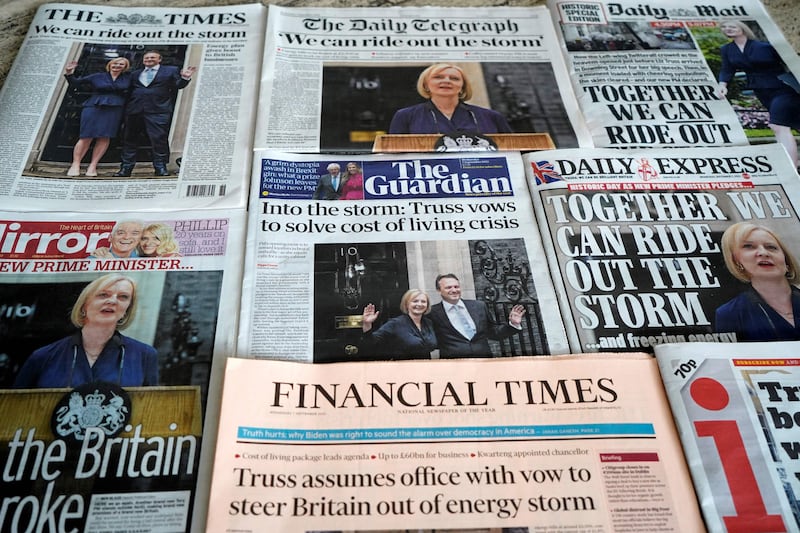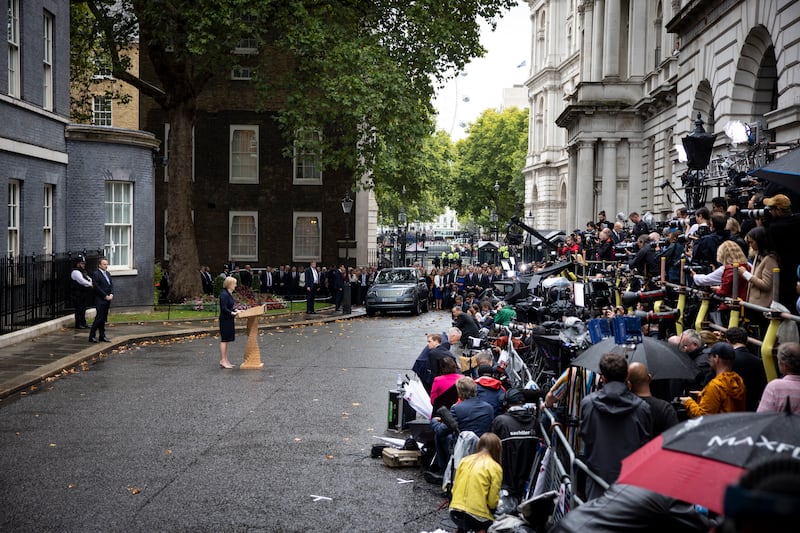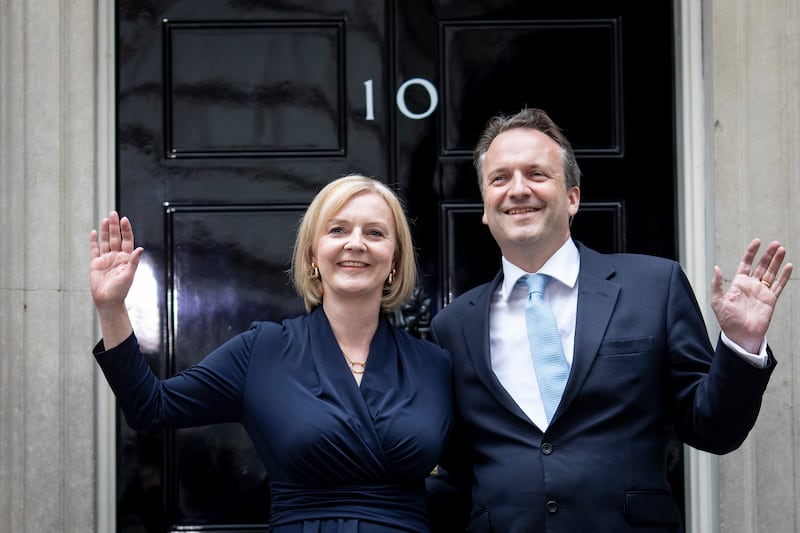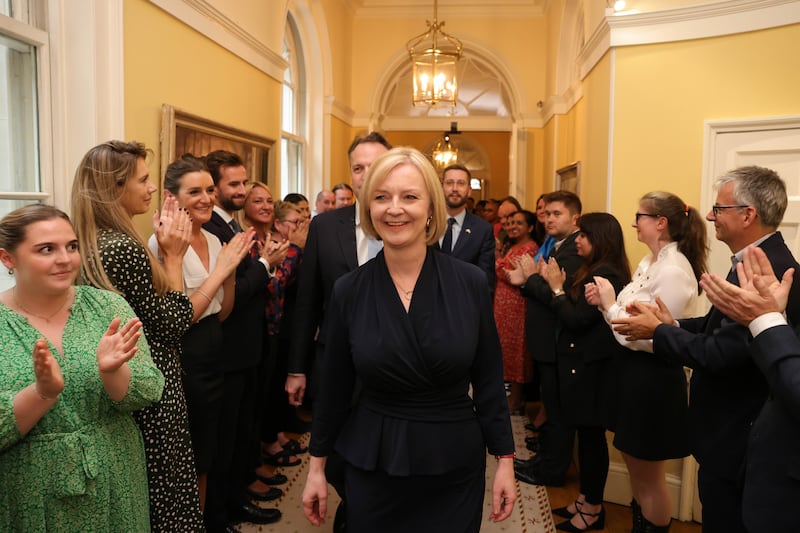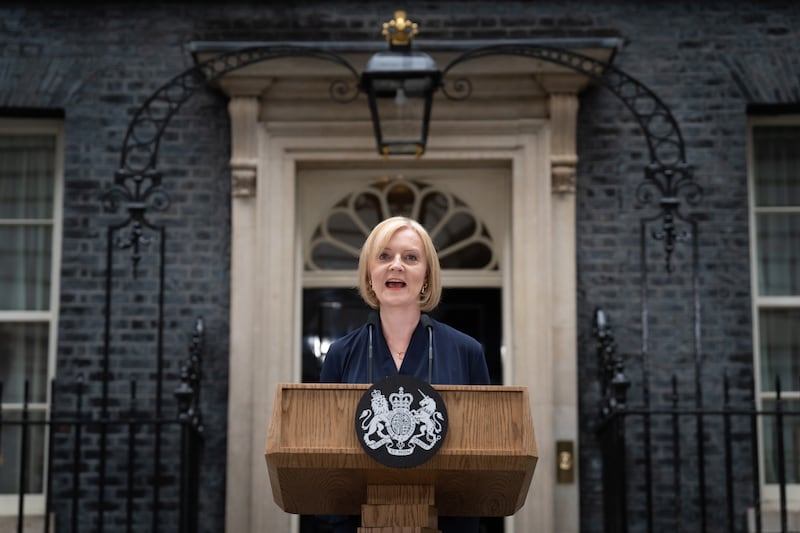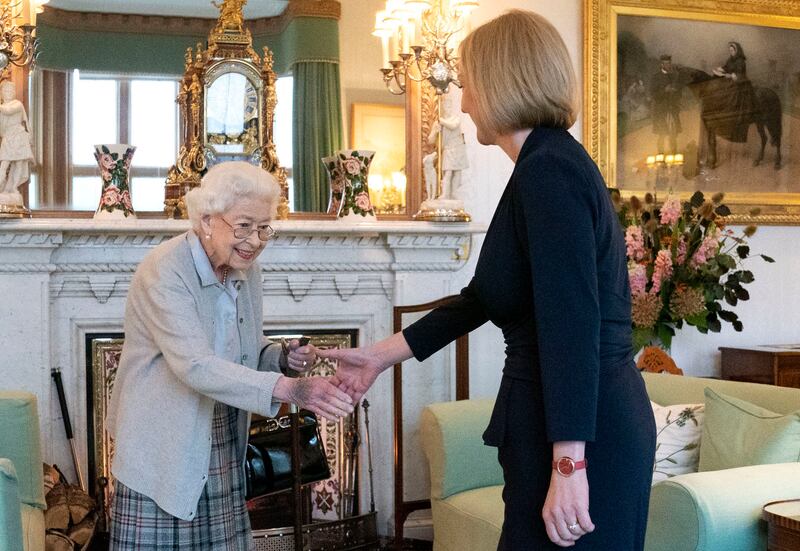One Conservative donor said it was the “worst” party conference he had been to in 50 years, a veteran journalist said it was the “most chaotic” in 50 that he had covered, “and that’s including Labour and the Lib Dems”.
At times it felt like the Tories had lapsed into the blood sports much loved by some, scenting prey and like hounds following it, regardless of the consequences.
That mindless chase towards impenetrable thickets was averted — temporarily at least — by Liz Truss’ conference speech, where she was emboldened by environmentalist protestors who attempted to steal her limelight.
In the end, she delivered a speech that grew in confidence, selling her vision of low tax and a booming British economy that appears to have bought her time.
Canada wipe-out
But that will not provide much solace for Conservative MPs terrified of losing their seats whenever the next general election occurs.
Some point to the wipe-out experienced by Canada’s Progressive Conservative party, whose popularity plummeted from 43 per cent to 16 per cent, losing all but two of their 156 seats previously held before the 1993 election.
Recent electoral surveys suggest MPs have good reason to be fearful, with steady polling showing the opposition Labour consistently at between 25 and 33 per cent ahead.
In the short term, at least, that favours Ms Truss, lending her the ability to exert party discipline with the threat of calling a general election in which most MPs would lose their jobs.
The risk of extinction might prove motivational and will probably tie MPs to Ms Truss’ vision for growth, no matter the consequences.
Cockpit addicts
The cause of the Conservative descent from being the self-styled “natural party of government” can be traced to the decision to call a referendum on exiting the European Union in 2016.
On the first day of Brexit they lost a sensible, centrist prime minister in David Cameron. Three prime ministers on and the party is plummeting earthwards in a spin.
“Since Brexit it’s been like a load of drug addicts are in the cockpit flying like crazy and we’re the passengers but it’s only the people in the cockpit who have ejector seats,” a respected Conservative figure told The National.
For now, it appears that Ms Truss has managed to land the plane but not exited the cockpit, surrounded by those who seem intent on self-immolation.
Snake and traitor
While the fledgling British prime minister ended the conference confident and, to a point, in command, that had not seemed possible when the man no Tory wants as an enemy, Michael Gove, fomented the first uprising of the Truss era on Sunday.
Well-intentioned headlines of fixing Britain’s economy were trounced when the former Cabinet minister, who was sacked by Boris Johnson as a final act of revenge the night before he resigned, lobbed a stun grenade.

“I don’t think it’s right,” he said, responding to whether he would vote for the five per cent cut to the 45 per cent tax rate for highest earners announced in chancellor Kwasi Kwarteng’s contentious mini-budget.
Mr Gove, who has variously been called a “snake” and a “traitor” by his own, is clearly exercising influence now he’s back among backbenchers.
His reach was such that Mr Kwarteng missed the main course of his dinner with reporters from The Sun newspaper on Sunday night, as Ms Truss summoned him to commit a U-turn on the tax hike.
Cabinet freelancers
That came on Monday, the humiliation was complete for Mr Kwarteng as the reversal came hours before he made his keynote conference speech. Lacking any lustre, and indeed attracting only lukewarm support, its main effect was to trigger the starting gun for a Tuesday of high drama.
MPs felt emboldened to force further concessions with ministers — including Leader of the House Penny Mordaunt, calling for social benefits to rise in line with inflation, currently around 10 per cent.
Cabinet discipline went up in smoke mid-conference, with ministers openly floating their own policies against the government position.
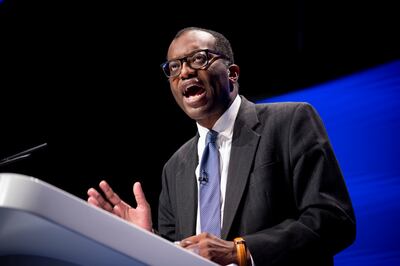
Home Secretary Suella Braverman criticised the tax U-turn and accused Mr Gove and other critics of Ms Truss of staging a “coup” to force the climbdown.
Trade Secretary Kemi Badenoch publicly told Ms Braverman not to use such “inflammatory” language.
At one point it appeared Mr Kwarteng was blaming Queen Elizabeth II’s death for all the chaos, claiming his mini-budget had to be seen in the context of the “high pressure” period following her demise and funeral.
Grant Shapps, a former Cabinet minister renowned for his reading of the Tory mood, said MPs would not “sit on their hands” in ousting Ms Truss without improvement.
Whipping in
All eyes will be on the prime minister when MPs return to Westminster next week. MPs who vote against her tweaked financial package will probably find themselves without the whip, suspended from the party, Downing Street officials have hinted.
For now, it appears that Ms Truss’ conference speech has saved the situation. “People just need to give her a chance to deliver something and run the country,” one Conservative member told The National. “Because this is not about the party, it’s about the country.”
Battle for Britain
That hard won breathing space will not last for long. Challenging events loom for the government.
Next Wednesday, Ms Truss will come up against the official opposition, with Labour’s Sir Keir Starmer likely to be unrelenting in his criticism during Prime Minister’s Questions.
The Bank of England’s purchase of government debt, needed to restore order after the tax cutting triggered financial chaos, will end on Friday, October 14.
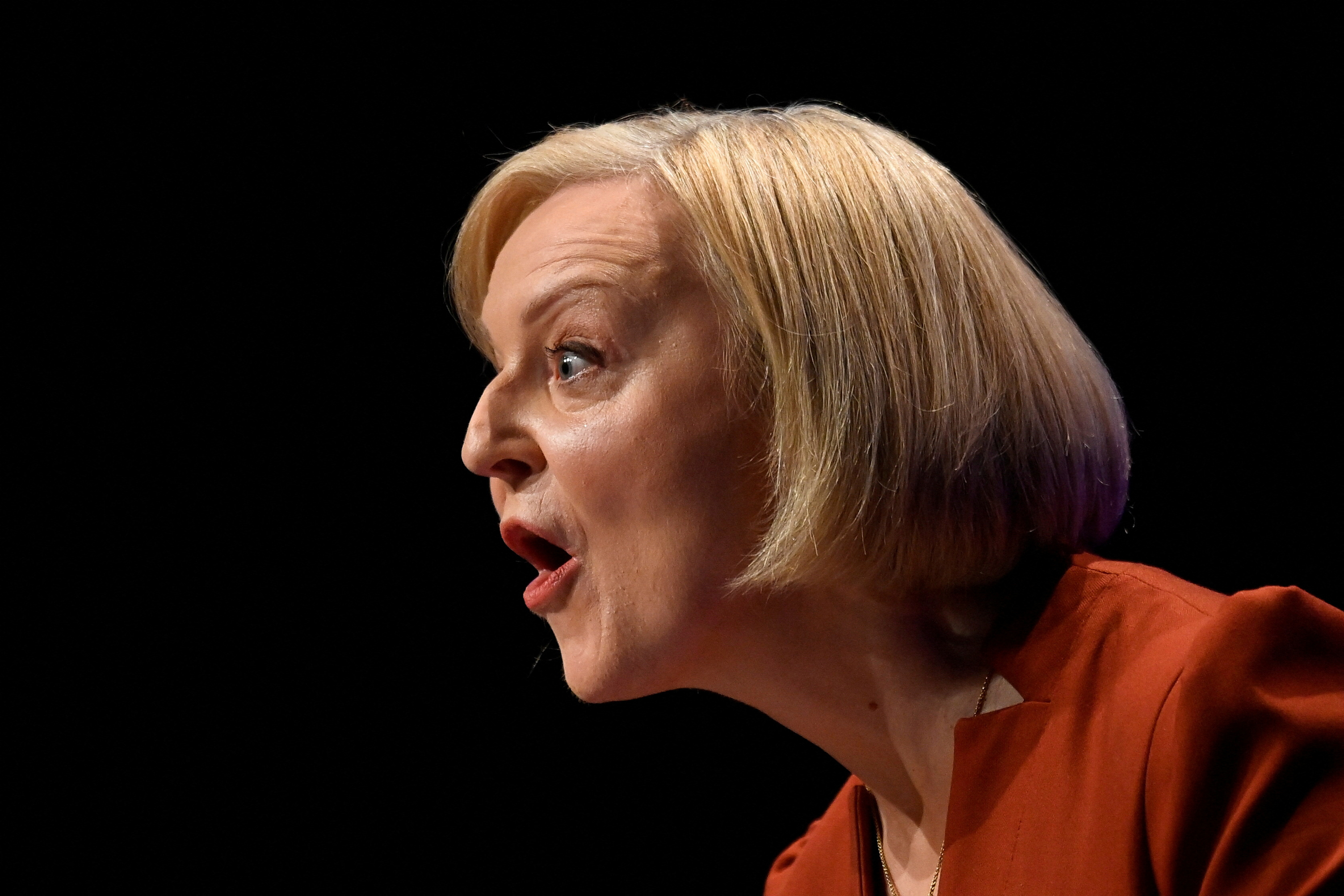
Before or shortly after then, the government will probably publish the Office of Budget Responsibility report, which will set out how the tax cuts will be paid. This will probably be via big cuts in public services, leading to further cries of dismay in Tory ranks.
The coming days will be a time of reflection for Ms Truss, who has undoubtedly had the most challenging apprenticeship in becoming prime minister since Winston Churchill took office in May 1940 as France fell and British forces were thrown out of Europe.
Two months later, the Battle of Britain began, when the country’s very existence was at stake.
